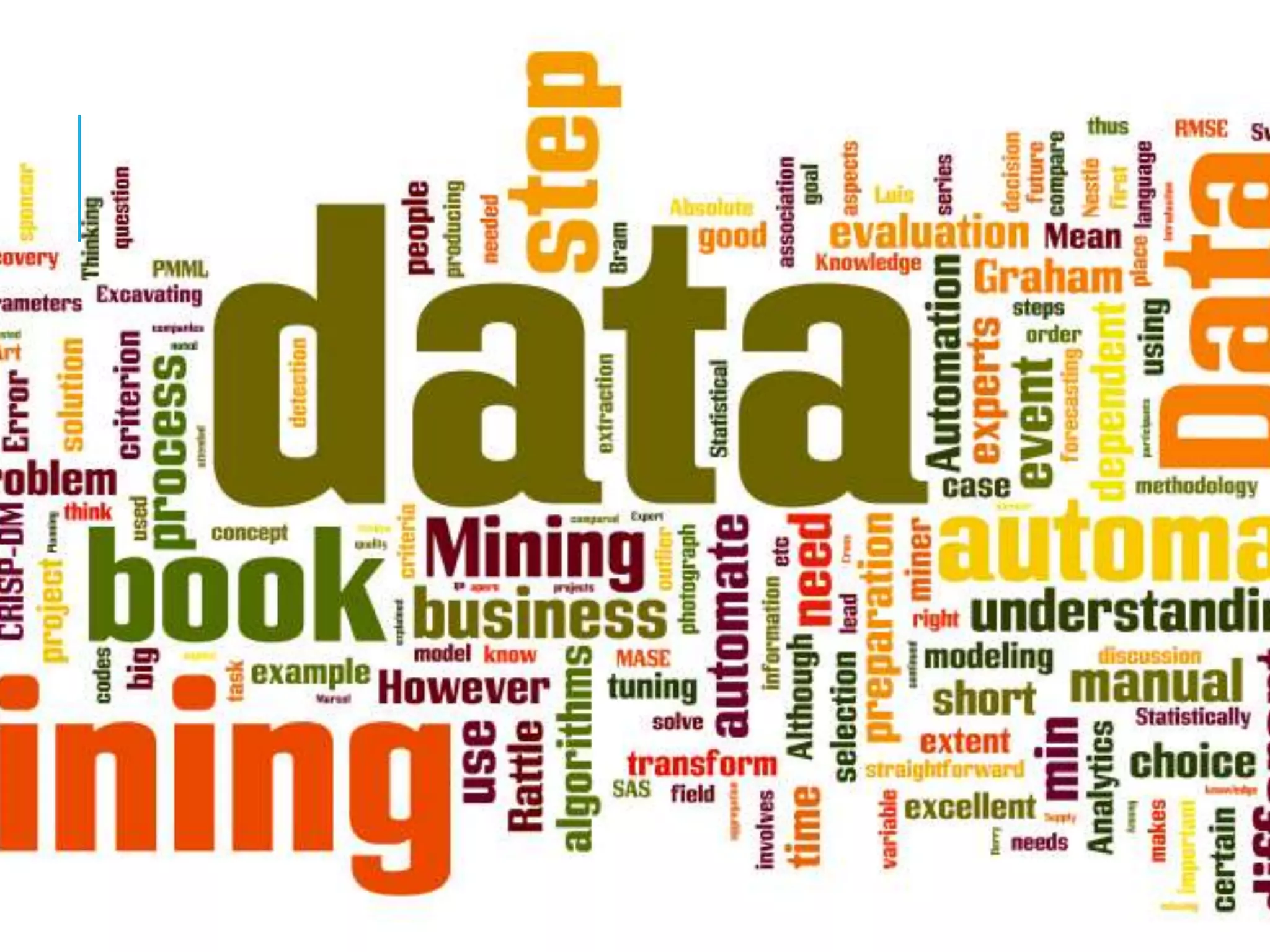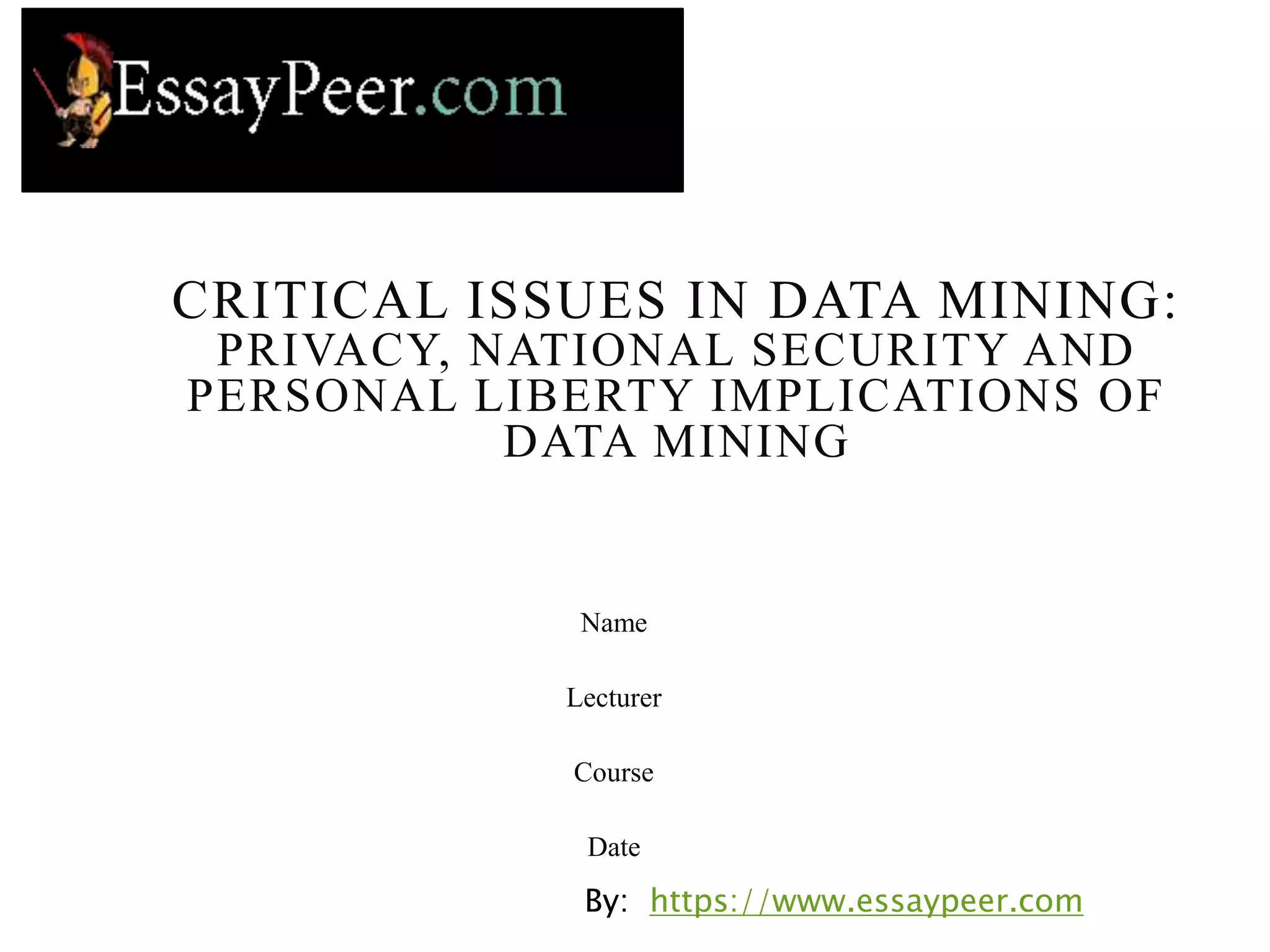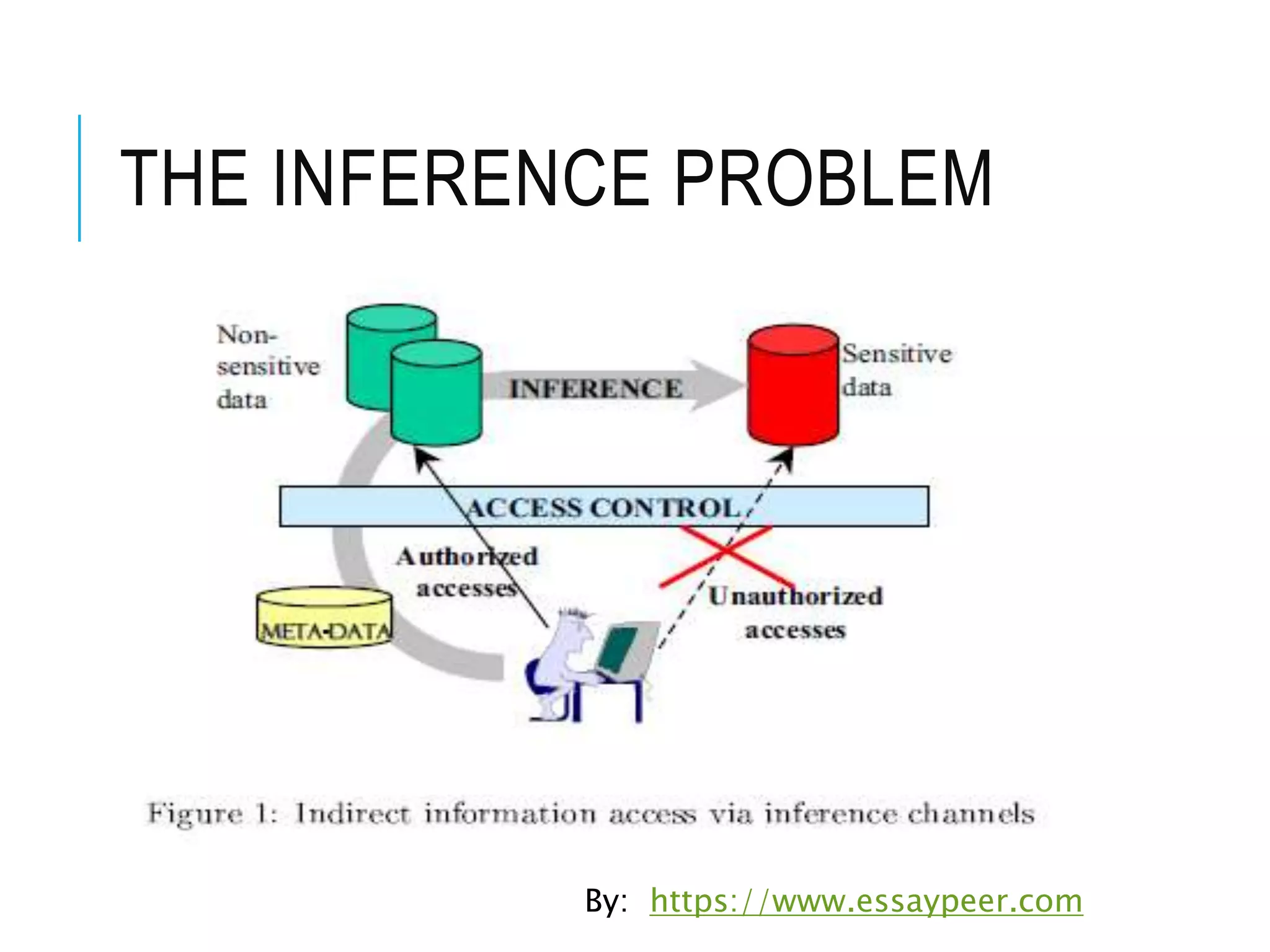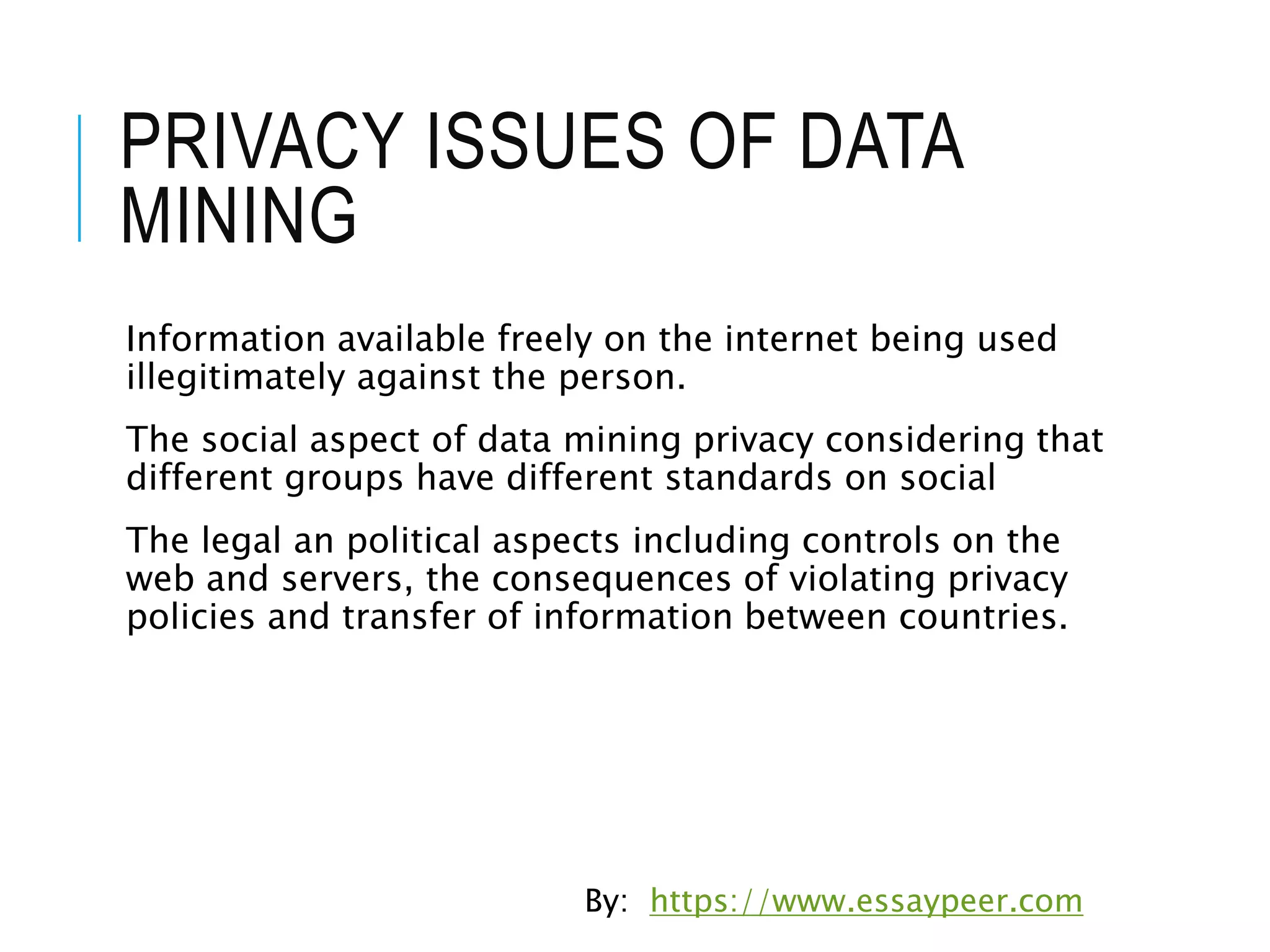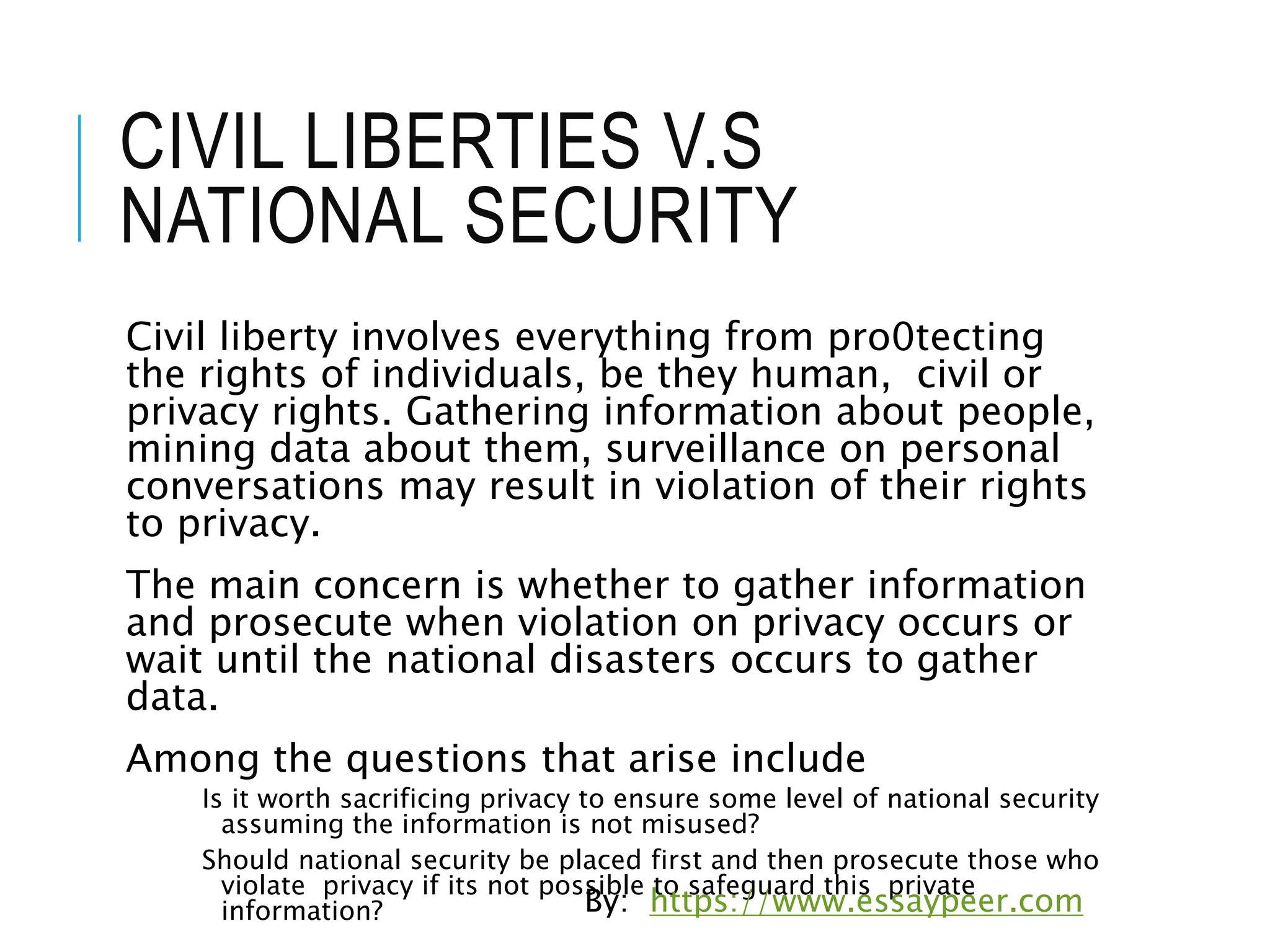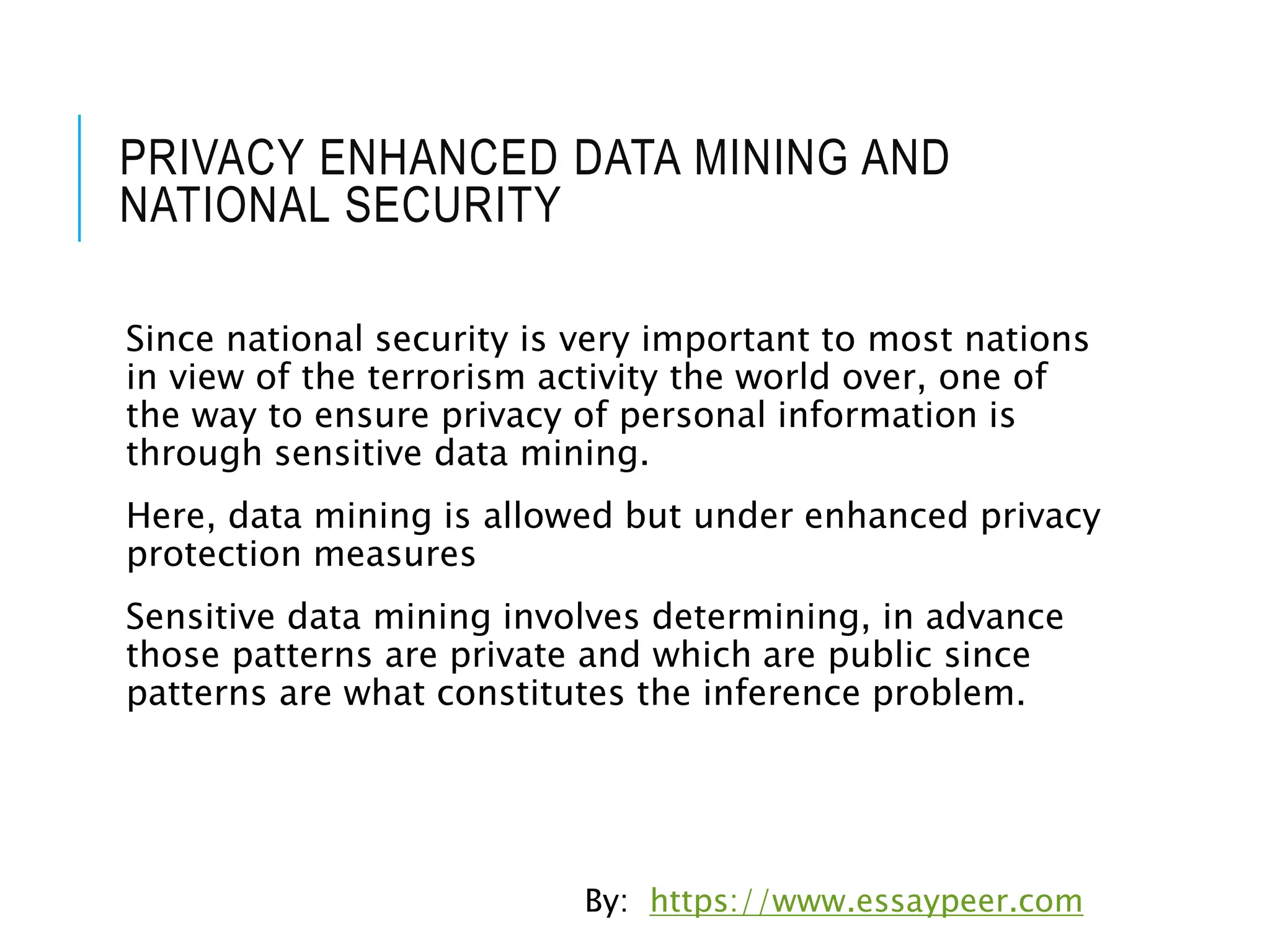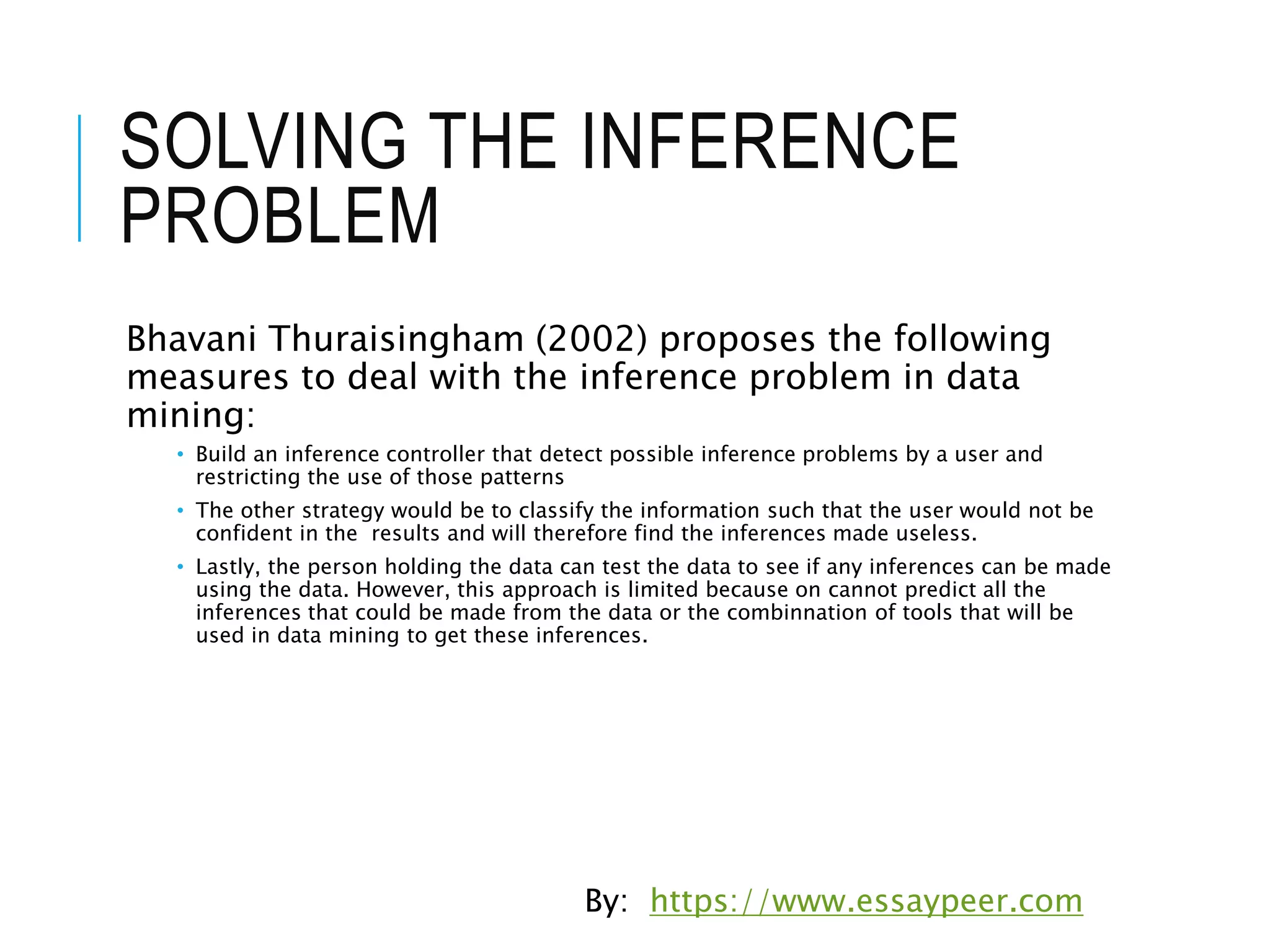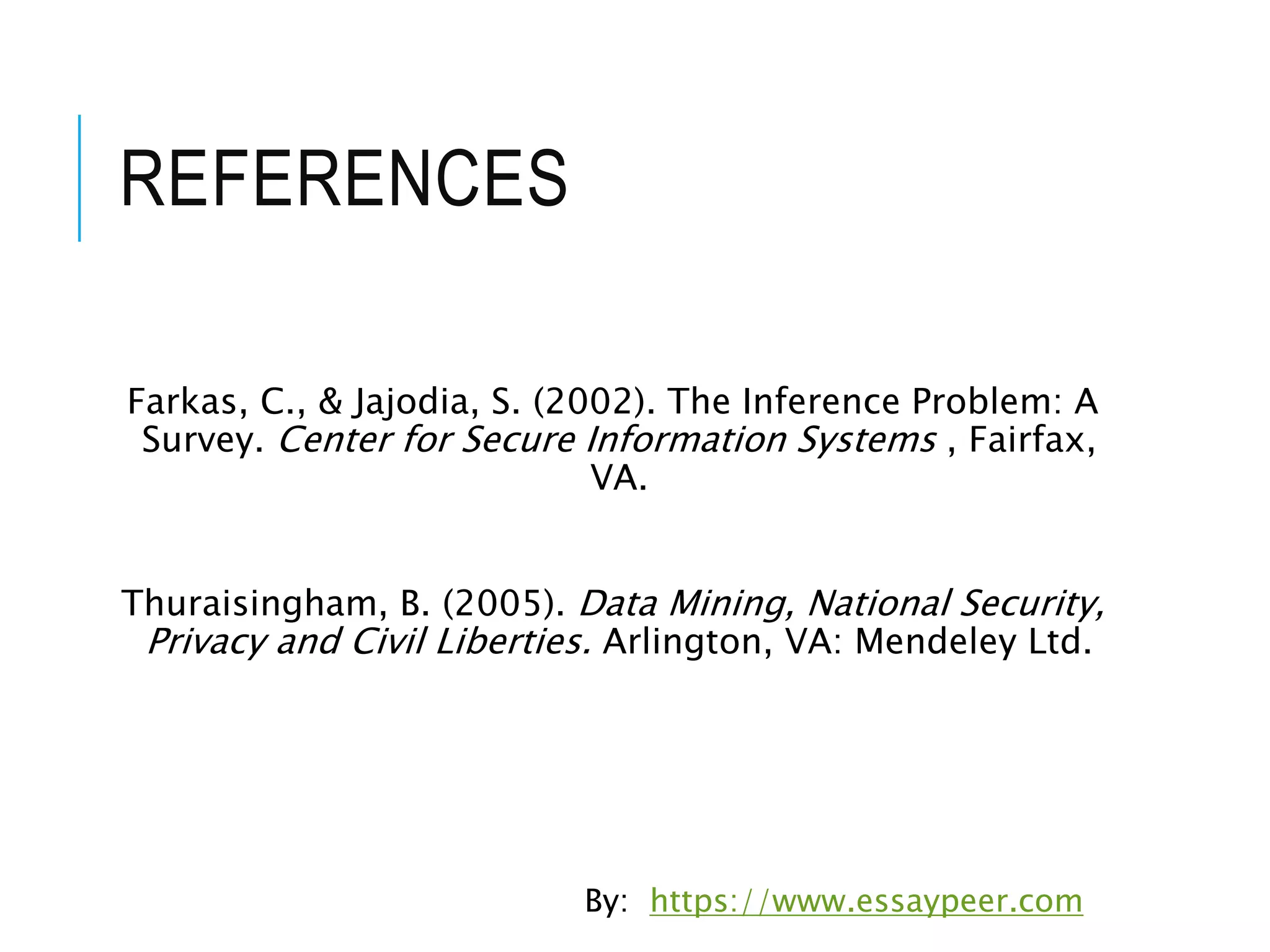The document discusses critical issues in data mining, focusing on privacy, national security, and personal liberties. It explores the implications of data mining on civil liberties and the challenges of balancing privacy rights with national security needs, including the legitimacy of surveillance and data gathering. Proposed solutions to the inference problem in data mining are also presented, emphasizing enhanced privacy protection measures.
